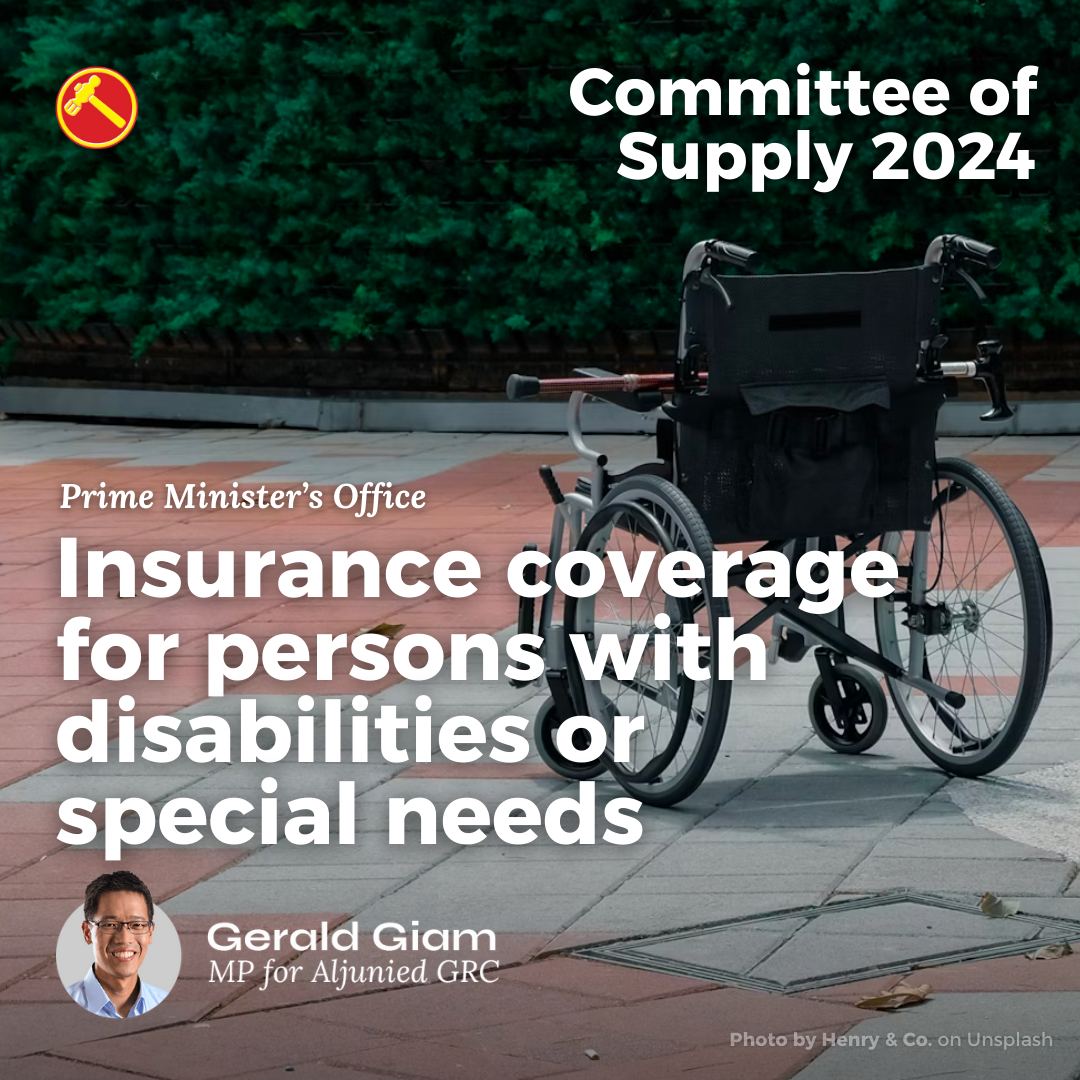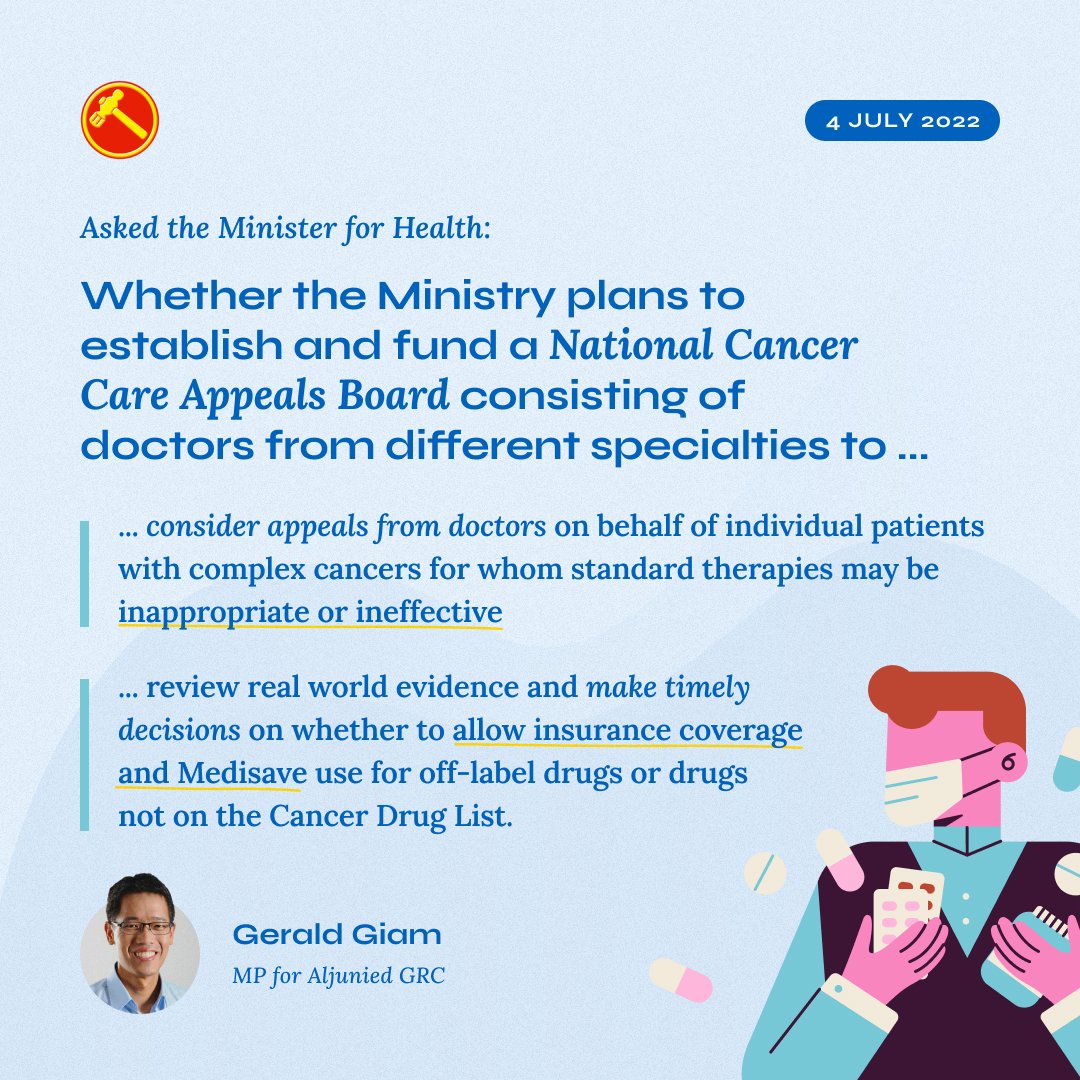My speech in Parliament during the Committee of Supply debate (Prime Minister’s Office).
Persons with disabilities or special needs often receive inadequate insurance coverage to protect themselves. Even if they manage to get insured, the scope of coverage and insured amount is often limited. MAS is proposing to issue guidelines to insurers that they should not indiscriminately reject an application solely based on declared personal information such as a disability.
Mr Chairman,
Persons with disabilities or special needs often receive inadequate insurance coverage to protect themselves. Even if they manage to get insured, the scope of coverage and insured amount is often limited. MAS is proposing to issue guidelines to insurers that they should not indiscriminately reject an application solely based on declared personal information such as a disability.
Instead, insurers are expected to carry out an objective assessment of every application based on reliable information or data relevant to the risks being insured. However, even under the new proposed guidelines, insurers are not prohibited from declining applications, setting higher premiums or applying conditions in view of the risks presented by an applicant with a disability.
Can the Minister explain when these guidelines will be issued, and how they will be materially different or more beneficial to persons with disabilities or special needs?

